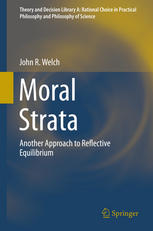

Most ebook files are in PDF format, so you can easily read them using various software such as Foxit Reader or directly on the Google Chrome browser.
Some ebook files are released by publishers in other formats such as .awz, .mobi, .epub, .fb2, etc. You may need to install specific software to read these formats on mobile/PC, such as Calibre.
Please read the tutorial at this link: https://ebookbell.com/faq
We offer FREE conversion to the popular formats you request; however, this may take some time. Therefore, right after payment, please email us, and we will try to provide the service as quickly as possible.
For some exceptional file formats or broken links (if any), please refrain from opening any disputes. Instead, email us first, and we will try to assist within a maximum of 6 hours.
EbookBell Team

4.3
48 reviewsThis volume recreates the received notion of reflective equilibrium. It reconfigures reflective equilibrium as both a cognitive ideal and a method for approximating this ideal. The ideal of reflective equilibrium is restructured using the concept of discursive strata, which are formed by sentences and differentiated by function. Sentences that perform the same kind of linguistic function constitute a stratum. The book shows how moral discourse can be analyzed into phenomenal, instrumental, and teleological strata, and the ideal of reflective equilibrium reworked in these terms. In addition, the work strengthens the method of reflective equilibrium by harnessing the resources of decision theory and inductive logic. It launches a comparative version of decision theory and employs this framework as a guide to moral theory choice. It also recruits quantitative inductive logic to inform a standard of inductive cogency. When used in tandem with comparative decision theory, this standard can aid in the effort to turn the undesirable condition of reflective disequilibrium into reflective equilibrium.